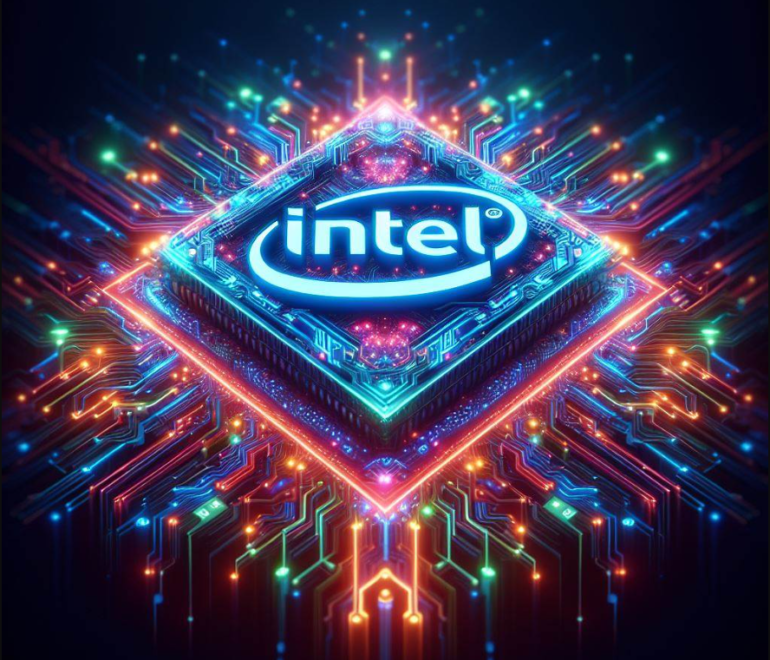TL;DR:
- Intel is launching AI-enabled chips tailored for the automotive industry, competing with Nvidia and Qualcomm.
- The company is acquiring French startup Silicon Mobility to enhance its electric vehicle technology.
- Chinese automaker Zeekr will be the first to use Intel’s AI chips for advanced in-car experiences.
- Intel aims to provide versatile chips for automakers, spanning from budget to premium vehicles.
- The competitive landscape in the semiconductor market for automobiles is intensifying, particularly in China.
- Intel remains open to accommodating automakers’ preferences for integrated technology.
Main AI News:
Intel, a tech giant renowned for its innovations in the semiconductor industry, is poised to shake up the automotive world with the introduction of AI-enabled chips tailored for cars. In a bold move, Intel aims to go head-to-head with industry heavyweights like Qualcomm and Nvidia, setting its sights on dominating the market for cutting-edge semiconductors that will power the brains of future automobiles.
As part of its strategic expansion, Intel has also announced the acquisition of Silicon Mobility, a French startup specializing in system-on-a-chip technology and software development for controlling electric vehicle motors and onboard charging systems. While the financial details of this acquisition remain undisclosed, it’s worth noting that Silicon Mobility is currently held by venture funds Cipio Partners and Capital-E.
Chinese automaker Zeekr is slated to be the pioneer in adopting Intel’s revolutionary AI system-on-a-chip, a development that promises to usher in an era of “enhanced living room experiences” within vehicles. This cutting-edge technology will encompass AI voice assistants and video conferencing capabilities, as disclosed by Jack Weast, Intel’s automotive business chief, ahead of the highly-anticipated CES technology show in Las Vegas.
Intel’s foray into the automotive sector revolves around adapting its latest AI PC technology to meet the rigorous durability and performance demands of the automotive industry. While Intel has a solid track record of supplying chips for infotainment systems in over 50 million vehicles, it has found itself overshadowed by Nvidia and Qualcomm in the emerging market for robust semiconductors essential for automated driving technology, upgradeable vehicle system software, and intricate dashboard displays.
Acknowledging this competitive landscape, Weast emphasized Intel’s commitment to enhancing its communication efforts, stating, “Intel has done a pretty terrible job communicating our success in the automotive sector. We are going to change that.“
In a bid to distinguish itself from competitors, Intel is positioning its chips as a versatile solution that automakers can seamlessly integrate across their product lines, spanning from entry-level vehicles to premium models. Weast further elaborated, “If AI in the car means 500 watts… and God knows what costs… it’s not scalable,” alluding to the potent yet costly products offered by Nvidia.
Notably, Nvidia formed an alliance with MediaTek of Taiwan last year, aiming to provide more cost-effective chipsets. MediaTek is renowned for supplying technology for Android-based infotainment displays, particularly in lower-priced vehicles. The burgeoning electric vehicle market in China is becoming a battleground for chip manufacturers, with Chinese automakers striving to offer cutting-edge infotainment systems and advanced autonomous driving capabilities. Zeekr, a prominent player in this market, is a customer of both Intel and Nvidia’s technology.
Furthermore, Intel has adopted an “agnostic” approach when it comes to accommodating the preferences of automaker customers in terms of automated driving and other functionalities. The company will not mandate automakers to use advanced driving chips exclusively designed by its former Mobileye unit. Instead, Intel is open to integrating automakers’ own chiplets, enabling specific functions within the Intel system at a more economical price point.
Conclusion:
Intel’s strategic moves in the automotive chip market signify a significant shift. By challenging established players like Nvidia and Qualcomm, and offering versatile solutions for automakers, Intel is poised to reshape the industry. The growing competition, particularly in China’s electric vehicle market, highlights the potential for innovation and market growth.

